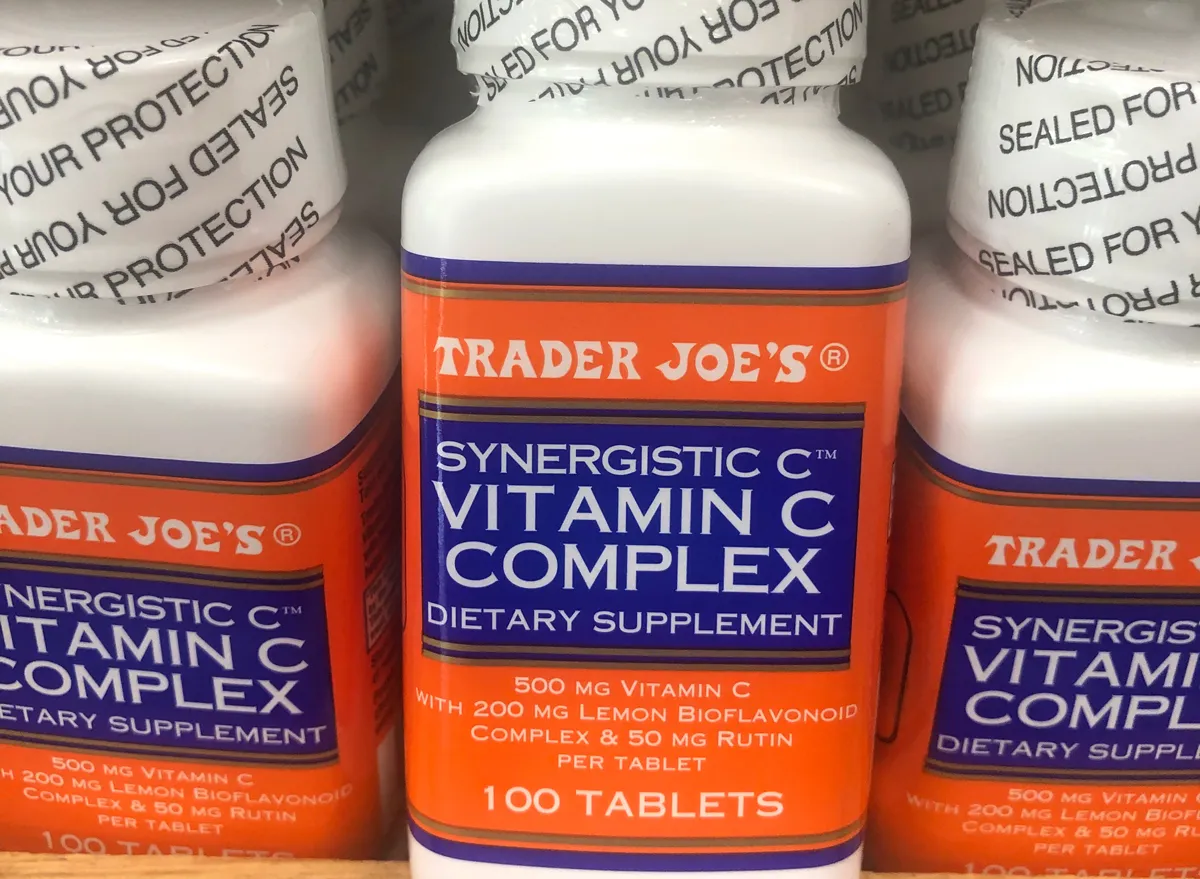Most of us have probably only taken vitamin C supplements when we've felt sick or on the brink of getting a cold or flu. And with flu season around the corner, you may have already stocked up on your supply for the winter.
What some people don't realize though is that as we get older, vitamin C supplements become even more important and serve a greater function than just helping fight against a cold.
"Vitamin C is essential for good health as we age and plays a variety of important roles in the body, like helping with immunity and aiding in necessary collagen formation," says Amy Goodson, MS, RD, CSSD, LD, author of The Sports Nutrition Playbook and a member of our medical expert board
It acts as an antioxidant.

According to Goodson, those over 50 can really benefit from taking vitamin C supplements because of their antioxidant effects.
"Vitamin C functions as an antioxidant that helps keep your immune system strong and helps to protect cells from free radicals, which are harmful molecules that can cause damage to your body over time," says Goodson.
Free radicals not only cause damage to your body's cells, but your body actually becomes less effective in fighting off free radicals as you age. So making sure you have enough antioxidants from things like vitamin C is crucial to healthy aging.
It can help reduce wrinkles.

Goodson says that vitamin C is also a great supplement to take to help improve the formation of collagen as you age.
"As you get older, your natural collagen production decreases, so consuming adequate vitamin C can help," says Goodson. "Some research suggests that higher vitamin C intakes might be associated with a lower likelihood of a wrinkled appearance, dryness of the skin, and a better skin-aging appearance."
It can help protect your eyes.

Although more studies still need to be done on this topic, there is growing research on the connection between vitamin C and protection against age-related eye diseases like cataracts and macular degeneration.
Harvard School of Public Health states that these findings are promising, although no human studies on vitamin C supplements and prevention of cataracts have been done yet.
How to get enough vitamin C

So now that you know the benefits of taking vitamin C after 50, how much of it should you be getting?
The Recommended Dietary Allowance of vitamin C is about 90 milligrams for adult men and 75 milligrams for adult women.
It is also recommended that you don't exceed 2,000 milligrams of vitamin C per day, especially if you don't want an upset stomach or indigestion issues. This shouldn't be an issue, as most vitamin C supplements are between 500 to 1,000 milligrams per capsule. Talk with your doctor before exceeding this amount.
No comments:
Post a Comment